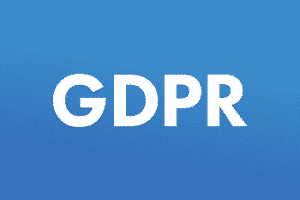iTech uses cookies so that we can provide you with the best user experience possible. Cookie information is stored in your browser and performs functions such as recognizing you when you return to our website and helping our team to understand which sections of the website you find most interesting and useful.
Customers are no longer within a few miles but spread across the globe. Regardless of the distance, speed still is of the essence. Logistics, therefore, has become the heart of the supply chain. This means that every industry, whatever be its size, has to factor in the transport and logistics sector as an integral part of their success.
Considering that this sector operates on speed yet, it has very thin profit margins. Logistics companies are using digital technologies in a big way to process their shipping and transportation-related information to ensure efficiency. However, freight audit and payment data capture is time-consuming and comes at a high operating cost, making it advantageous to outsource it. This calls for a high technical competency level and other prerequisites that a novice outsourcing partner must watch out for. As an experienced data entry outsourcing partner with a wide range of clientele in the logistics sector, iTech has put forth four fundamental cornerstones that an organization should watch out before availing data-entry outsourcing services.
Freight Bill Invoices are Unique
A freight bill is essentially different from a bill of lading. The former is an invoice provided by the shipper to its client and is used for bill paying. On the other hand, a bill of lading is a legal contract listing items, weight, value, and description. It also includes information about shipping and delivery times.
The problem is that there is no standardized format for either of these critical documents. The information on the freight bill invoice varies between companies. The complexity further increases when you realize many third-party logistics companies’ involvement from the point of pickup to delivery (3PL).
Also Read: Auditing Freight Invoices Internally vs. FBAP Service Providers
In a global economy, sending products across the country or overseas will require the data entry services partner to be familiar with different logistics invoice data capture for all documents and charges in different geo-locations. They must compare documents at various stages of the supply chain against the bill of lading and match it against the master database where contractual rates and terms are stored. This whole process can be error-prone, and BPO providers need to have quality processes that prevent it.
Multiple shipments, multiple payments
The logistics and transportation industry in America contributed to seven percent of the GDP, spending $1.4 trillion in 2016. This reflects an enormous crisscrossing supply chain network that spans multiple transportation modes, including air, freight rail, shipping, and truck transport.
Organizations have greater expectations for process outsourcing specialists to make document workflow as efficient as possible. They need to be able to support all documents in all formats in each supply chain network segment. Often this can be paper bills, and transportation documents remotely scanned and transmitted. It requires an understanding of different currency rates and new transportation legalities in other countries. Outsourcing agencies need the domain expertise to be able to deliver sustained results in a short time.
Also Read: Common Invoice Data Capture Challenges in Freight Bill Audits
Quickness is Key
The sooner the different documents involved with shipping are digitalized, audited, approved, and uploaded, the faster the invoice gets prepared for payment. Outsourcing partners usually provide 24×7 support with high-speed networks that make round-the-clock document processing possible.
Potential service providers are also assessed for response time, cost-effectiveness, and their ability to scale up operations as requirements grow. Another critical area where novice outsourcing providers often stumble is in not having a well-defined emergency protocol. Sometimes you may require priority data and urgent resource allocation that does not affect other processes.
Get It Right
Experienced BPO companies understand the importance of recruiting the right people for the job. Often, data-entry outsourcing agencies who are fresh to this look to save costs by recruiting cheaply and hope training can make up for any deficiencies. However, providing services at a lower price than competitors could strain data quality and accuracy.
Just imagine a single digit change in the zip code or wrong placement of a decimal. If this is not detected, it could cause untold damage in downstream processes. Incorrect shipments, delayed payments, and loss of reputation are just the tip of the iceberg. Data entry service providers must ensure that errors, if any, are caught early. One of the many ways to ensure data accuracy is to use a double-key entry verification process. This prevents errors that arise from wrong keystrokes.
Highly trained professionals backed by the latest technology have helped leading providers provide an accuracy percentage of 95 percent. However, a minimum of 90 percent is the industry norm.
With broader exposure in the logistics sector, we always find the best fitting services for our clients. We offer a wide range of services-Freight audit and payment services, automated invoice data capture, sales order management system, and more To know more about data entry outsourcing services, contact iTech.



